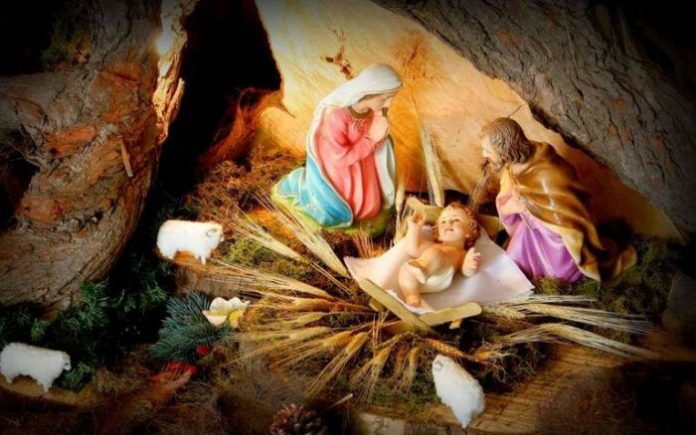The iconic custom of setting up nativity scenes at Christmas time, in remembrance of the birth of the Child Jesus, has spread throughout the world. But when did this tradition originate?
Newsroom (09/12/2021 09:05 PM, Gaudium Press) The tradition of making nativity scenes originated with St. Francis of Assisi in 1223. St. Francis wanted to explain to the peasants of the Italian town of Greccio the mystery of the birth of the God Child.
Despite the attention and respect of the faithful present, they did not seem to have understood what he was trying to tell them. It was then that, inspired by Divine Providence, St. Francis had a brilliant idea to become more didactic to the illiterate inhabitants of Greccio.
A miraculous prodigy
The Saint ordered them to bring him an image of the Child Jesus, a manger, straw, an ox, and a donkey. In a short time, the scene was set: in the center, the manger filled with straw, and in the background, two peaceful animals slept. All that was missing was the image of the Baby Jesus.
Tradition says that at the moment when with great devotion and tenderness, St. Francis took the image of the Child God in his hands an incredible miracle took place. Before the amazed eyes of all, the image came to life and smiled at Francis, who embraced it and laid it down on the straw of the manger.
The Nativity of Saint Francis
The peasants knelt in adoration, while the Child Jesus smiled once again and gave a blessing to all who were prostrated at his feet. He then became an inanimate image again, but the vivid memory of the Child God and his smile remained in everyone’s memory.
Since then, the inhabitants of Greccio began to set up the “nativity scene of St. Francis” every year, in the hope that the miracle would be renewed. Although the image is no longer alive, it is certain that the devotees of the Child God have never ceased to receive the same Christmas graces as those who witnessed the first crib in history.
A tradition that has spread around the world
The iconic custom of setting up cribs for Christmas in remembrance of the birth of the Child Jesus has spread throughout the world, and today we can see cribs of all sizes, shapes, and materials (clay, wood, porcelain, sand, chocolate, etc.).
The name nativity scene comes from the Latin ‘praesaepe’, which means manger. Nativity scenes are usually set up on the first Sunday of the liturgical season of Advent and are dismantled on January 6, when the Church celebrates the Solemnity of the Epiphany of the Lord. (EPC)
Compiled by Agnes Joseph

































